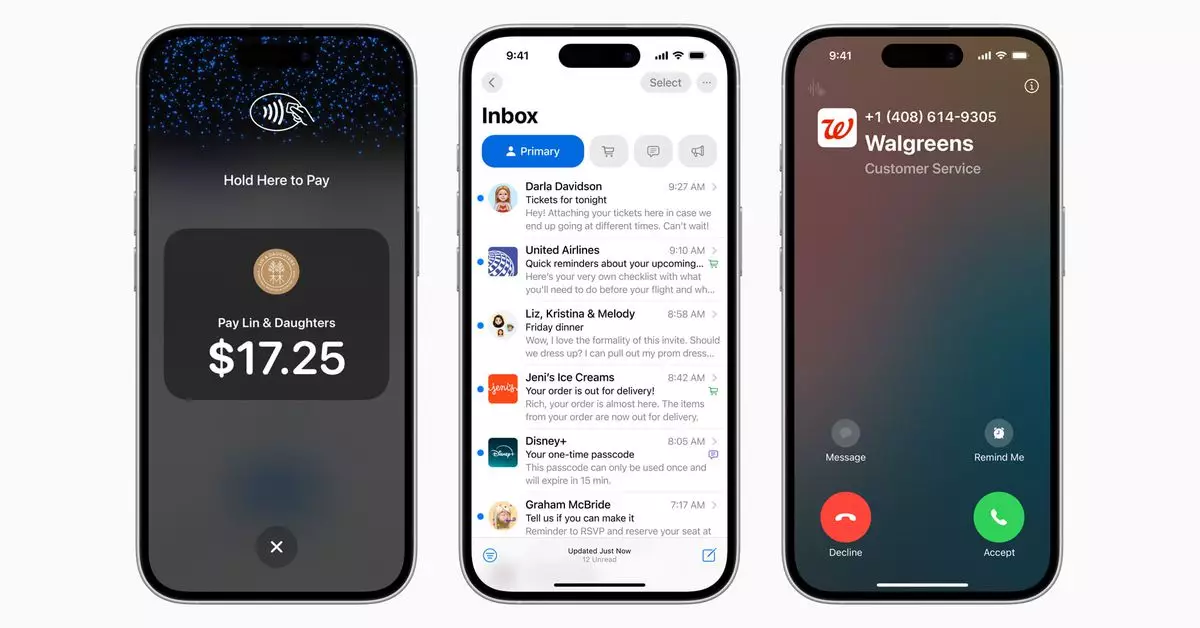In a significant development for businesses, Apple has unveiled plans to permit companies to personalize their identities within various iPhone applications through its Business Connect tool. This strategic move aims to enhance the way businesses interact with their customers and to improve brand recognition across Apple’s suite of applications, including Maps, Messages, Wallet, and Siri.
The initial launch of Business Connect last year enabled businesses to claim and verify their listings, ensuring accurate information is displayed. This new functionality signals a broader aim for Apple to consolidate and enhance the user experience within its ecosystem, further reducing the need for users to seek external validation from platforms such as Google or Yelp. By integrating verified business information, Apple not only bolsters user trust in its platforms but also lays the groundwork for potentially developing its own search capabilities.
One of the standout features announced is Branded Mail, which allows businesses to register and promote their brand name and logo within emails. This innovation is particularly crucial in a landscape overwhelmed with unread emails and spam. As users become increasingly selective about which communications to open, this feature could significantly improve how brands engage with their customers.
In a market that has seen Google integrate features like verified brand logos in emails, Apple’s move to streamline brand identification is a timely response. As businesses are offered the chance to stand out in chaotic inboxes, it presents a dual advantage: users will quickly recognize trusted brands, and companies will see optimized opportunities for engagement.
Another notable feature is the Business Caller ID, which grants companies the ability to display their name, logo, and department when making calls. This initiative is likely to resonate well with consumers who frequently receive unsolicited calls that may deter them from picking up legitimate ones. It can significantly improve the decision-making process for users, as they would have immediate information to discern whether a call is worth answering.
Starting its rollout next year, this feature could serve as a protective layer against spam, enhancing user confidence and streamlining communication between businesses and their clientele. Consumers can feel more secure in their interactions, knowing that they’re engaging with verified businesses.
In addition to visual identification in communication, Apple is also advancing its Tap to Pay service. The upcoming update will allow companies to display their logos while processing payments instead of generic category icons. This shift is particularly relevant in a world where brand recognition plays a vital role in purchasing decisions. Customers are likely to respond more favorably to visual cues that reinforce their familiarity and trust in a brand.
By focusing on strengthening the relationship between businesses and consumers through these visible branding initiatives, Apple is positioning itself not merely as a technology provider but as a facilitator of trust and recognition. While analyzing these developments, it becomes clear that Apple is not just enhancing the functionality of its platforms but is also setting a standard for customer engagement and brand interaction within the digital landscape.
Apple’s recent announcements reflect a strategic evolution in its approach toward business engagement. By allowing brands to customize visibility across various applications, Apple paves the way for a more immersive and trust-filled interaction between businesses and consumers. As these initiatives unfold, they promise to shift the paradigm of how businesses communicate digitally, ensuring that companies can stand out amidst the digital noise. This holistic approach to branding in an ecosystem dominated by iOS could be indicative of future trends, making brand visibility a key component of digital marketing strategies moving forward.

